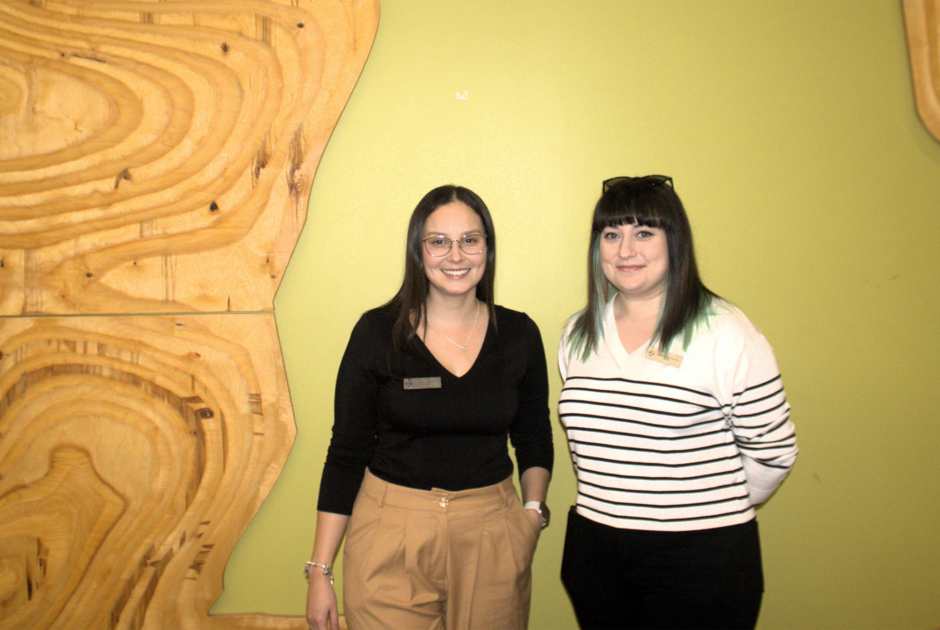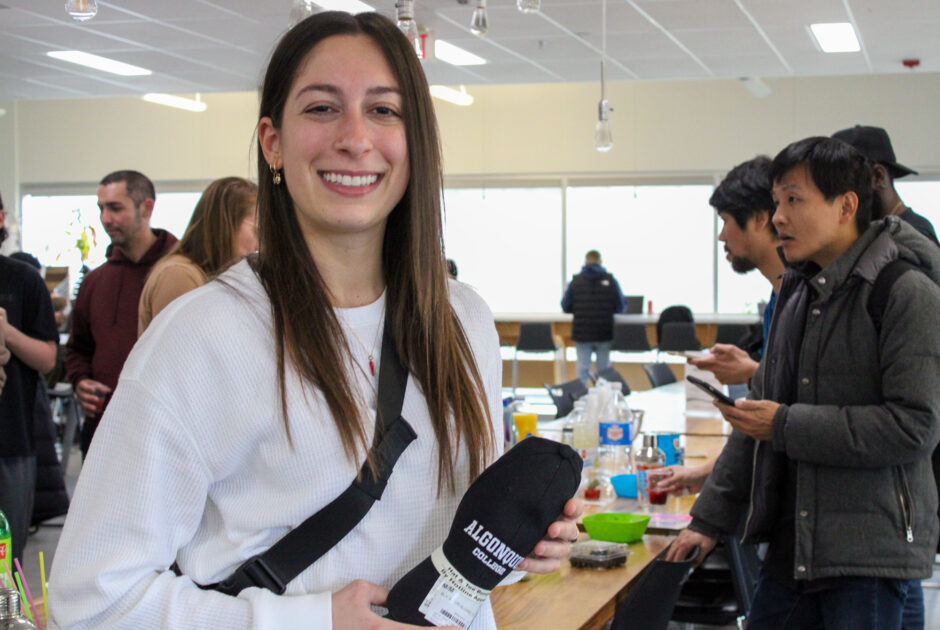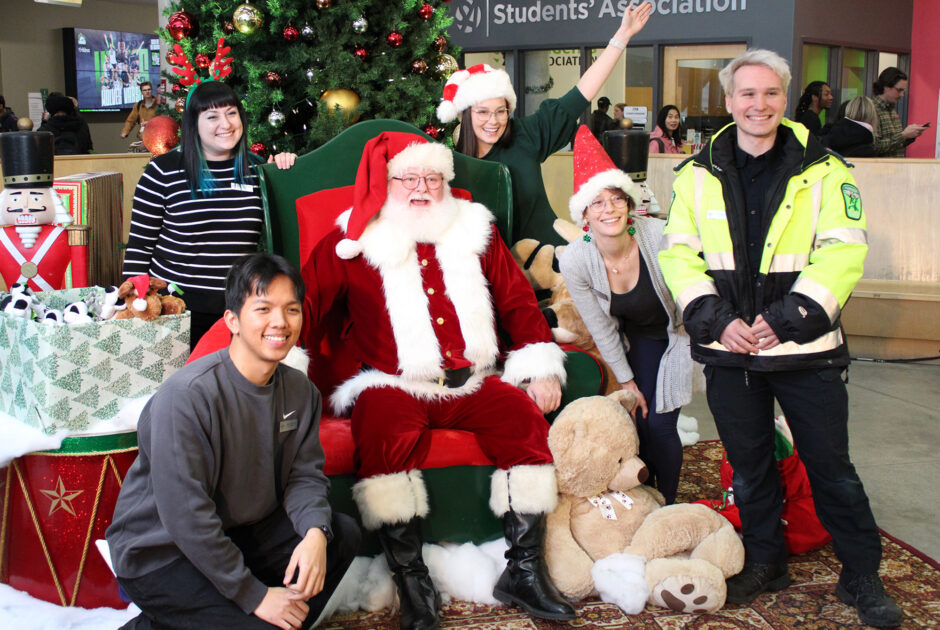Sixties Scoop survivor explains issues to Algonquin College
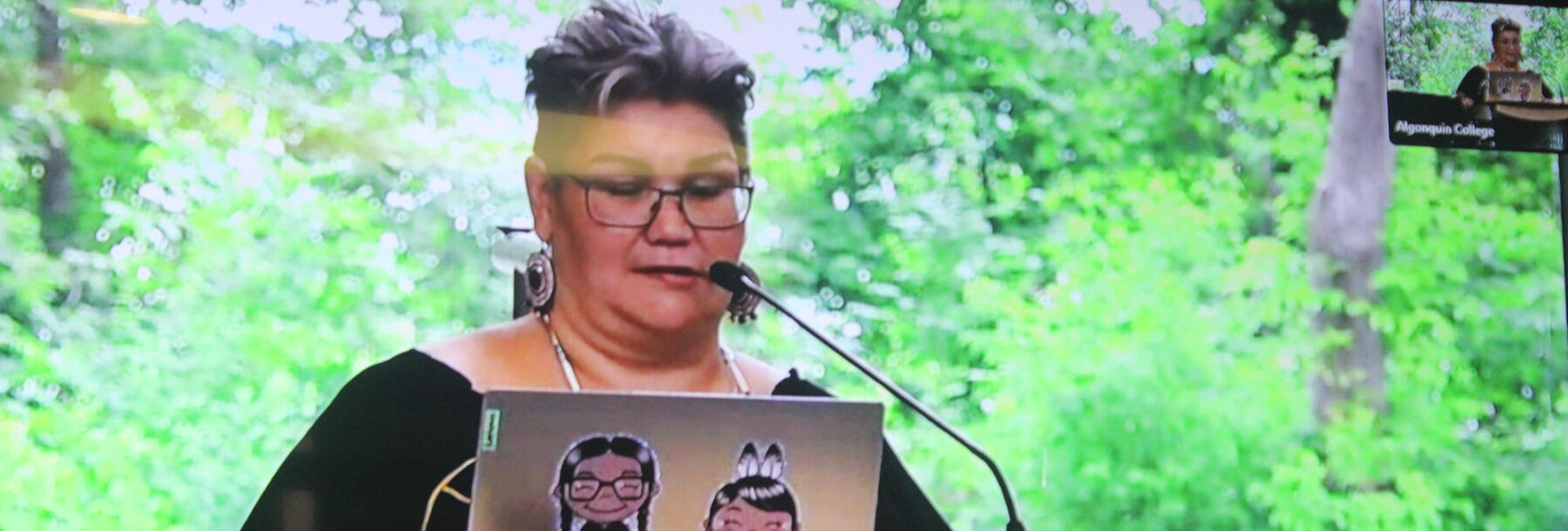
Colleen Hele Cardinal, an academic and activist from Saddle Lake First Nation, spoke at the Pembroke campus as part of Algonquin College’s National Indigenous Peoples Day Speaker Series. Her speech on June 21 was live-streamed at the Mamidosewin Centre.
Cardinal spoke about contextualizing Indigenous child removals in Canada and understanding the historical and contemporary circumstances surrounding the Sixties Scoop.
This period, which actually lasted from the 1950s to mid-’80s, saw the large-scale, non-consensual removal of Indigenous children from their families and communities. The children “scooped” in this way were put in foster homes or up for adoption, often in non-Indigenous families.
The program is considered to have been cultural genocide (as described in the famous Kimelman Report) and to have contributed to long-term issues dogging Indigenous communities, including mental illness rates.
Cardinal is herself a Sixties Scoop survivor and now works to help others. She has organized six national Sixties Scoop gatherings in Ontario and raises international awareness about the displacement experienced by survivors. She noted the connections between colonial child welfare policies, missing and murdered Indigenous women, and the Sixties Scoop, drawing from personal and familial experiences. She has written a book titled Raised Somewhere Else, and led the “GIS Mapping the Sixties Scoop Diaspora” project.
“Some of our issues are very unique and sometimes we have to teach non-Indigenous folks about what life could be like for us in isolated communities or without resources,” Cardinal said.
“My colleague, Elaine Kiknosway, and I go to communities and organizations, anybody who works frontline with Indigenous people, we want to help them understand how to work with Sixties Scoop survivors and our descendants.”
“ There is not one single Indigenous person that I know that has not dealt with these issues or is currently dealing with these issues . . . . missing and murdered Indigenous women, girls and Two-Spirit, as well as gender violence. My . . . older sister, Gina, and my sister-in-law, Lynn, were both murdered out in Edmonton while I was living out there. I was 16 years old at the time, and I carried that grief with me for a long time,” Cardinal said.
She said she didn’t have any context as to why that happened and wanted to know more.
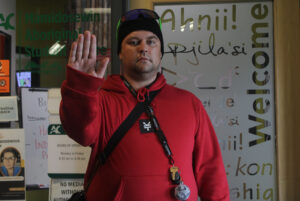
Jacob Thompson Bonaparte, a music industry arts student said: “My grandfather was a Sixties Scoop survivor and today us Indigenous are over a barrel and we are just trying to live … My community has lived through the Oka crisis and has gone through generational trauma. We are just trying to go through our healing journey.”
As Sixties Scoop survivors and co-founders of the Sixties Scoop Network in Ottawa, Cardinal and her colleague Kicknosway have worked to foster a supportive community for survivors since 2014.
“There was nobody else doing this work. It was important for us to have space to reconnect with our culture and to build community with other ’60s group survivors.” “To this date, 11 years later, we’re still continuing to partner with research initiatives, raising awareness to spaces like this and workshops and creating trauma-informed curriculum, which is hard to find out there, as well as anti-racism workshops.”
Cardinal also created the Sixties Scoop Geo forms, a website where Sixties Scoop survivors tell their stories. It is a map which shows where they were taken from, and where they ended up.
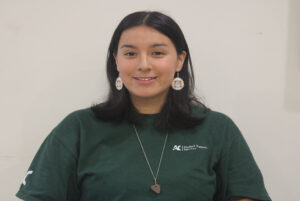
Summer Wabasse, events and communications officer at the Mamidosewin Centre, said: “I think it’s really important that every student, every staff member, every faculty member here at the college takes time to attend an event like this, virtually or in person. Because we all have the responsibility to learn about not only Indigenous history, but candid history of colonialism and depression of Indigenous people.”
“I think it’s all of our responsibility to educate ourselves and so happy that we were able to partner and put on this event today … it was a great way to commemorate National Indigenous Peoples Day.”





